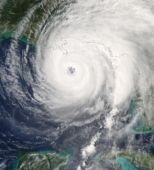Article
Sandy Caused Heart Attack Spike
Author(s):
Insurers and disaster relief organizations are still tallying the bill for Super Storm Sandy, the weather disaster that caused an estimated $68 billion in damage in the Northeastern US on Oct. 2012.

Insurers and disaster relief organizations are still tallying the bill for Super Storm Sandy, the weather disaster that cause an estimated $68 billion in damage in the Northeastern US on Oct. 2012.
Now a Rutgers New Jersey Medical School study has found Sandy took a direct and dramatic toll on some residents’ health. They found a 23% rise in serious heart events in parts of New Jersey during and immediately following the storm. Those included fatal heart attacks.
Reporting at a poster session at the European Society of Cardiology Congress Sept.1, a Rutgers research team reported on the incidence of serious heart events in Sandy’s wake.
The team looked at the incidence of such cardiac events during the two weeks after the 2012 storm and in the equivalent weeks for the five previous years—as well as cardiac events for the two weeks leading up to Sandy’s landfall.
They found 335 cases compared to an expected 273 events.
In addition, the total number of acute myocardial infarction deaths, both in and out of the hospital, increased by 28% from the expected 120 to 154 deaths.
The effects were seen only in counties where Sandy hit hardest, the researchers found.





